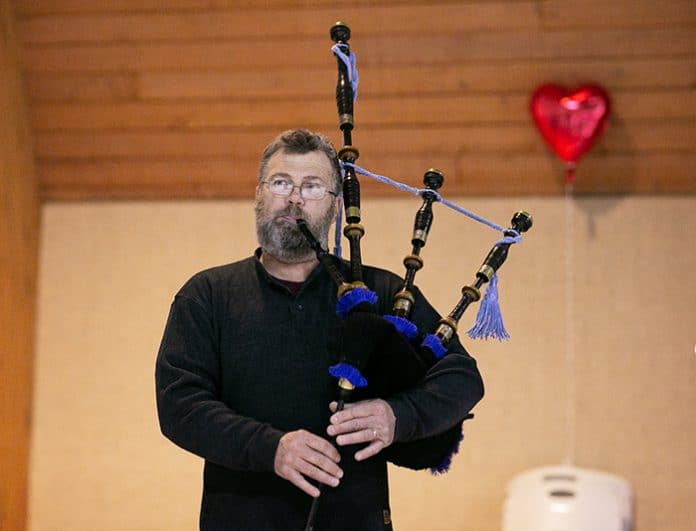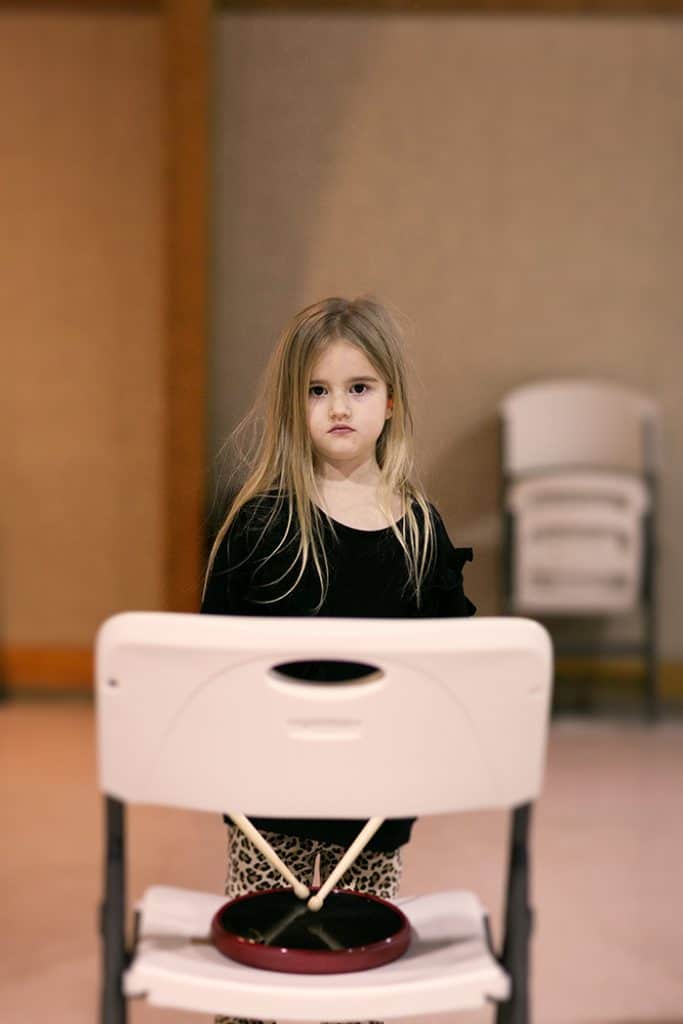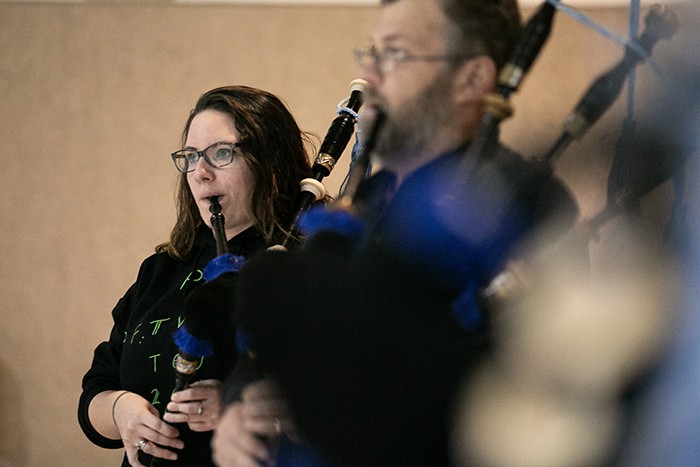
TOMS RIVER – People wander in, likely confused. Since when does a court-ordered Alcoholics or Narcotics Anonymous meeting include bagpipes?
Wrong room. They’ve stumbled upon a practice of the Pipes & Drums of Barnegat Bay, which practices Mondays at Christ Episcopal Church on Washington Street. At 6 p.m. a small gathering of novices pick up chanters and practice scales and gracenotes with band founder and pipe major Frank Johnson. Around 7 p.m. band members will trickle in, with their drums and bagpipes, chatting and erupting into what sounds like a high-pitched traffic jam on a hot New York City summer night.
They’ll eventually quiet, form a circle. The marching bass drummer will boom boom, boom boom to count the time, the bagpipers will inhale, and the cacophony from several minutes before bursts into nine-notes in unison.
It’s nearly parade season, and they have to practice.
Johnson, a contractor from Toms River, has been playing bagpipes since 2000. He studies under award-winning bagpiper Derek Midgley, who was busy making repairs to some instruments while the band practiced.
“A friend of mine, he would go to bagpipe practice, and I tagged along with him one night,” Johnson said. He has a degree in music. “I had always wanted to learn.”

According to several sources on Celtic life, bagpipes were thought to originate in ancient Egypt, and were brought to the British Isles by Roman infantry, although others say it’s an Irish import. Although bagpipes have been found all over, their basic design is the same: the blowstick, which the piper blows into to fill the bag with air; the chanter, which is the part the bagpiper fingers to play the notes; the drones, which are exactly what they sound like, the part that “drones” the low humming sounds associated with the instrument. The bags can be made of anything from plastic to sheepskin.
For Johnson, as for other members of the band, it’s personal. While many of them simply stressed an appreciation for Scottish life and history (and no one credited Outlander for any sudden love for bagpipes), many have familial connections to Celtic roots.
The band’s Tartan is Irving of Bonshaw-family, from Bonshaw Towers. In Scotland. Johnson’s maternal grandmother is connected to that family. And while such trivia won’t mean anything to most people, for the band it means they need permission to purchase the tartan material from the Laird of Bonshaw. Each band member wears a kilt made of the Bonshaw tartan at a cost of about $700 each.
Dionne Negron of Lakewood met Johnson at a local Scottish festival several years ago. Her grandfather, Joseph Logan, was a member of the Black Watch, 3rd Battalion, Royal Regiment of Scotland, an infantry battalion of the Royal Regiment of Scotland. A popular DNA at-home testing kit revealed she’s 43 percent Scotch-Irish, so it’s “mandatory to play bagpipes.” Her sister, Marisa Negron, is learning the snare drum.
“I love the sound of bagpipes. I just love the sound. I know some people find them so irritating,” Dionne Negron said.

The Irvings of Bonshaw crest states Haud Ullis Labentia Ventis: Yielding Under No Winds. Whether inherited from the kilts they wear or the stubbornness they genetically inherited, the band marches in all weather. Their upcoming appearances include the Burlington County St. Patrick’s Day Parade in Mount Holly on March 2 and Belmar’s St. Patrick’s Day Parade March 3.
Pipes & Drums of Barnegat Bay was formed in 2007. The band boasts 15 members today and is in need of snare drummers. They practice 6-9 p.m. Monday nights at Christ Episcopal Church, 415 Washington St.
For more information, visit facebook.com/pipesdrumsbarnegatbay/.







